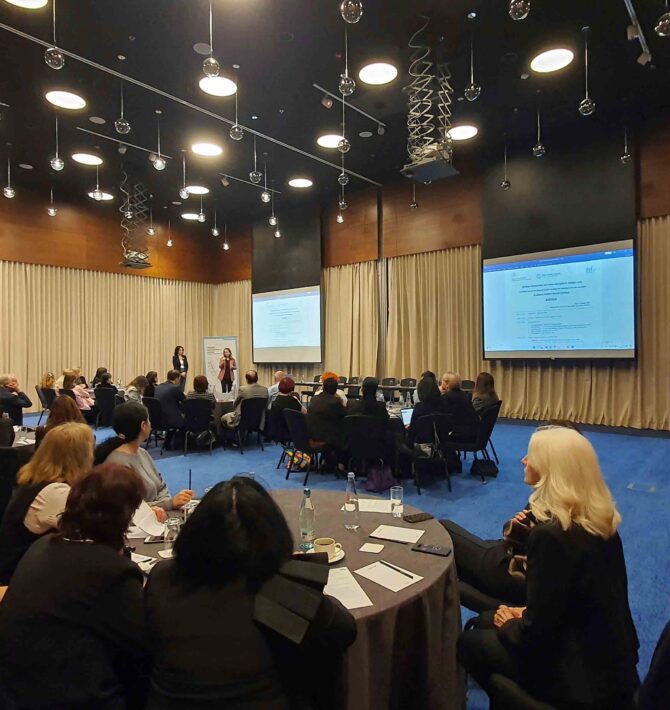IBF International Summarized a Bi-Annual Progress of General Education Development to Stakeholders
The consulting company IBF International provided the progress made in general education within the scope of the Innovation, Inclusion, and Quality Project – Georgia I2Q (WB) at the 4th Bi-Annual Project Review Seminar on October 9, 2024.
The seminar was attended by representatives from the World Bank, the Ministry of Education, Science and Youth, schools, educational resource centers, and donor organizations.
Key points discussed at the seminar included:
Development and implementation of the STEAM extracurricular program aims to update the curriculum of STEAM subjects and promote overcoming the achievement of learning outcomes, as well as deepening students’ knowledge and developing skills. The program has already been successfully introduced and operates in 80 schools across Georgia. From the 2024-2025 academic year, an additional 120 schools will be involved in the activities (200 schools in total). At this stage, relevant schools are provided with furniture and educational kits. Leader schools are selected, which, beyond the the program implementation, are entrusted with implementing joint projects with other schools.
Ron Titus, an expert in the management of quality assurance in education, spoke about the new quality assurance system implementation which involves the authorization of schools. The expert noted that an analysis of the best practices of the authorized schools was prepared in the last 6 months and shared with the schools. In addition, the concept and mechanisms of the general educational institutions’ expert corps evaluation were developed and are piloted in cooperation with the LEPL – National Center for Educational Quality Enhancement. Also, authorization results are being evaluated. International experts will assess the authorization’s positive impact on the development of schools and will hold meetings with all stakeholders, including schools.
Expert Newman Burdett evaluated the progress achieved in the last 6 months regarding the whole school improvement project. Here attention is focused on the development and promotion of the school’s internal quality. In early October 2024, the third workshop was held with the participation of pilot schools. Workshop participants also presented the practice of sharing their experiences with other schools. Burdett noted that work to share practices with schools continues and the number of participating schools will increase from 15 to 50.
Evaluation system specialist Norman Emerson spoke about the progress of developing and refining the student’s continuous formative assessment system. In this direction, the piloting assessment mechanisms and tools are successfully underway. It was also noted that the schools’ representatives talked about the challenges and complications found during the formative assessment model implementation, which is planned to be overcome within the project.
Expert Susan Iannuzzi noted that to strengthen bilingual education, a training module related to bilingual teaching methodology is being developed for teachers of non-Georgian language schools in cooperation with the Ministry of Education, Science and Youth, and relevant schools.
Sarah Sharratt presented the work carried out during the last 6 months. She works on data collection issues and uses. She noted that during the reporting period, experts in cooperation with the LEPL Education Management Information System are working on an appropriate guide that will help schools identify important data and, most importantly, process and use it for further development.
National assessment specialist Eduardo Cascallar spoke about the ongoing work in the direction of the development of the national assessment system at the level of general education and noted that in the wake of the revision of the national goals of general education and subject curriculum standards, in the fall of 2024, in close cooperation with the LEPL – National Center for Assessment and Examinations, preparatory work has started in all subject groups of the basic level for developing the national assessment mechanisms.
Following the progress reports, a panel discussion was held. The international experts presented the best practices for cooperation with schools. They also discussed the main challenges and planned activities in the ongoing work.
The seminar concluded with a discussion where representatives of piloting schools shared their experiences with the stakeholders.







